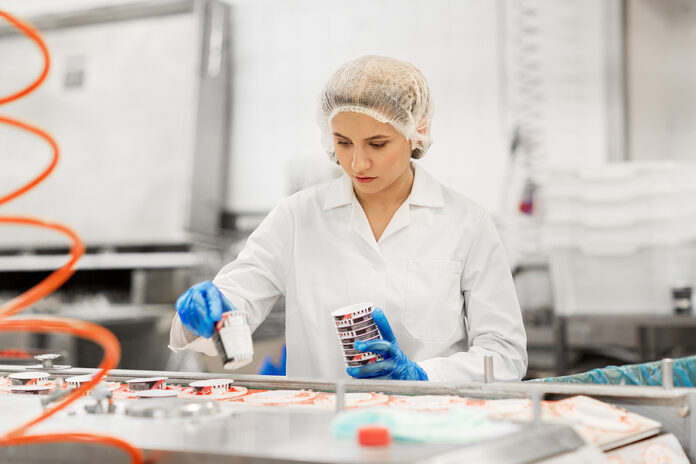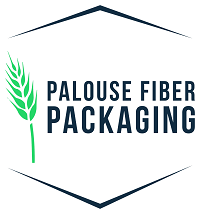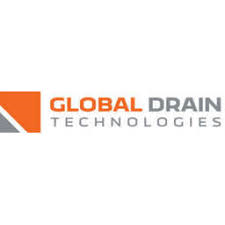
By Eric Kroll, principal with Baker Tilly’s Food, Beverage, and Agribusiness practice
Key Takeaways:
- The Food Safety Modernization Act (FSMA) has significantly increased traceability requirements in the food industry, mandating companies to track products throughout the supply chain.
- Advanced technologies like AI, IoT sensors, and blockchain are being used to enhance food traceability, improving safety and efficiency in the supply chain.
- While compliance with traceability regulations requires investment, it benefits both manufacturers (through improved efficiency and risk management) and consumers (through enhanced food safety).
Every year one in six Americans (48 million people) get sick from foodborne illnesses, according to the U.S. Centers for Disease Control. In 2023, the U.S. Food and Drug Administration (FDA) reported 232 recalls, with listeria and salmonella contamination among the biggest offenders. Fortunately, a recent emphasis on traceability and technology has made it easier to identify and recall unsafe products, facilitating companies’ ability to respond to safety incidents while enhancing consumer trust.
The FDA defines traceability as the ability to follow the movement of a food product and its ingredients through all steps of the supply chain. This involves documenting and linking the production, processing, and distribution chain of food products and ingredients. Backward traceability goes in the opposite direction of the supply chain, starting at the grocery store shelf working backwards to trace ingredients to their original source of production. Forward traceability starts where ingredients are originally grown or produced, working forward through the supply chain until the final product reaches retailers for consumer purchase.
Impact of the Food Safety Modernization Act
Traceability has taken on a more prominent role in manufacturing with the passage of the Food Safety and Modernization Act (FSMA). One of the pivotal laws influencing and reforming safety and transparency, FSMA, passed in December of 2010 and was signed into law on January 4, 2011. But it took another four years for the FDA to finalize what the FSMA regulations would look like in practice. The act gives the FDA new and enhanced mandates and authority to protect consumers and promote public health and applies to about 75% of the U.S. food supply.
Section 204 of the FSMA includes a Food Traceability List, where the FDA requires companies to keep additional records on designated foods. The new requirements identified in the final rule will allow for faster identification and rapid removal of potentially contaminated food from the market, resulting in fewer foodborne illnesses and/or deaths.
Perhaps the most significant impact on supply chains is the traceability requirement relating to supplier verification. Food and beverage companies are required to have systems that track products through every step of the supply chain, from raw materials to finished products. This includes documentation of the source ingredients, the production process and distribution channel. FSMA requires companies to have preventative controls in place, including the development of risk-based hazard analysis plans and import controls to ensure foreign suppliers meet U.S. safety standards. All these measures have increased costs in the food and beverage industry, as compliance with these standards requires investment in new technologies and training.
AI, machine learning, the Internet of Things, and blockchain
As traceability requirements have matured, so has the technology used in maintaining compliance. AI and machine learning (ML) algorithms can now be leveraged to analyze vast amounts of data collected from various points in the supply chain. These technologies can help predict potential risks and disruptions before they happen and suggest preventative measures, allowing companies to proactively manage food safety risks. AI and ML can also improve demand forecasting, ensuring that traceable stock is available where needed while optimizing the flow of goods.
Another recent technological development in traceability is the use of Internet of Things (IoT) sensors to monitor and record environmental conditions such as temperature, humidity, and light exposure throughout the supply chain. These “smart sensors” provide real-time data that can be accessed remotely, ensuring perishable goods are stored and transported under optimal conditions, reducing spoilage and waste, while maintaining product quality.
Blockchain has also been increasingly adopted to enhance transparency and traceability in the food supply chain. Blockchain technologies create a digital ledger that records every transaction and movement of food products through the supply chain. In addition to immutable record-keeping, blockchain provides real-time traceability from farm to fork, allowing companies to track products at every stage of the process, and, if necessary, speed up the recall process.
The cost of non-compliance
If companies violate FSMA, they receive a warning letter and have 15 days to comply, and the FDA may reinspect plants to ensure compliance. Violations may be treated as a criminal act, and the FDA could issue a food recall order. In egregious cases, the FDA may conduct an audit, arrest responsible parties, and suspend registration for the facility, leading to temporary or permanent shutdown. On the bright side, we’ve seen an increase in consultants who specialize in this area of compliance who offer solutions to the complex record-keeping regulations.
Win-win: how traceability benefits manufacturers and consumers
While rigorous record-keeping may take time and additional resources, traceability regulations offer many benefits to manufacturers. The Food Traceability Final Rule provides a national framework for compliance that aligns with the regulations, with the FDA even offering a downloadable, electronic, sortable spreadsheet template.
A robust traceability system helps manufacturers improve their supply chain efficiency because it allows companies to track the movement of ingredients and products through all stages of production, including where ingredients are sourced. This, in turn, helps manufacturers identify and manage risk associated with food products and may help them lower the impact of recalls and liability costs. Companies can also expect to see an increase in trust with their customers as they implement traceability procedures required by law.
Most importantly, traceability benefits consumers because new technology quickly identifies potentially contaminated foods, removes them from distribution, and isolates the contamination. These developments are priceless from a public safety perspective; we can expect traceability and technology will help significantly reduce the number of people affected by foodborne illnesses every year.
 Eric Kroll is a principal with Baker Tilly and the leader of the firm’s Food, Beverage, and Agribusiness practice. He has more than 20 years of experience serving both public and private companies throughout the food and beverage supply chain and provides assurance and advisory services to clients on a range of operational and financial domains.
Eric Kroll is a principal with Baker Tilly and the leader of the firm’s Food, Beverage, and Agribusiness practice. He has more than 20 years of experience serving both public and private companies throughout the food and beverage supply chain and provides assurance and advisory services to clients on a range of operational and financial domains.

Credit: Source link













